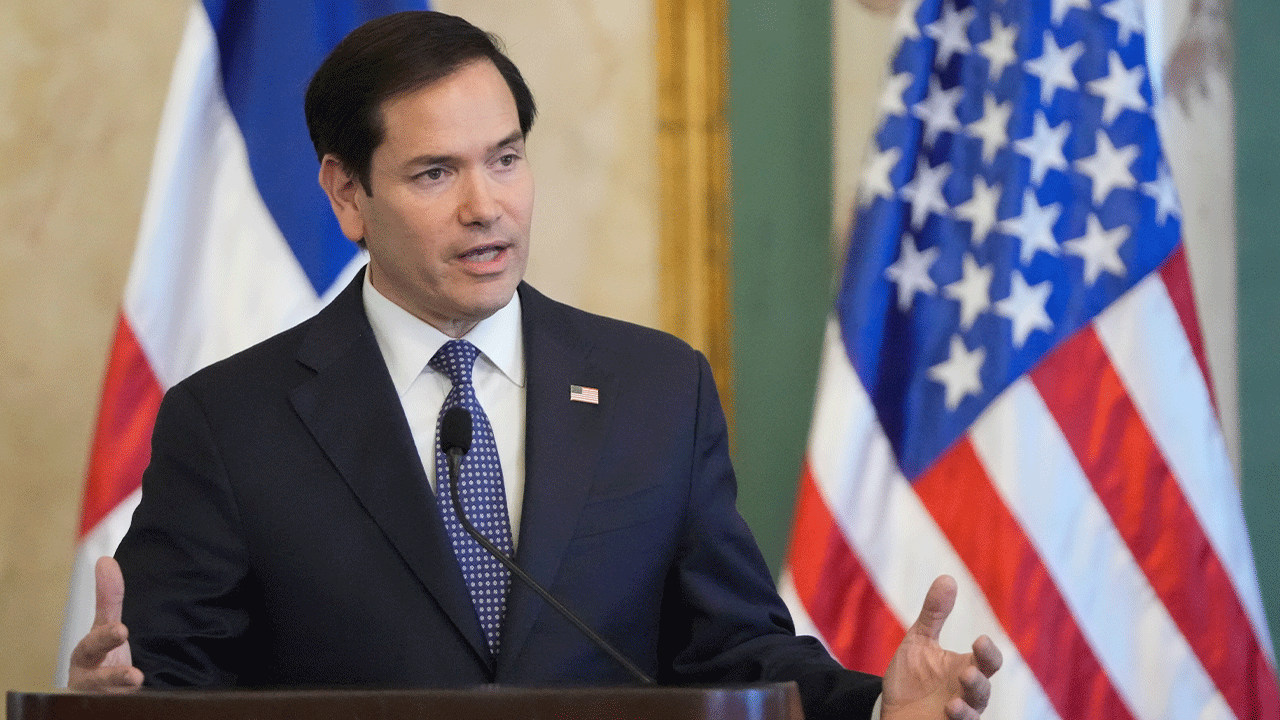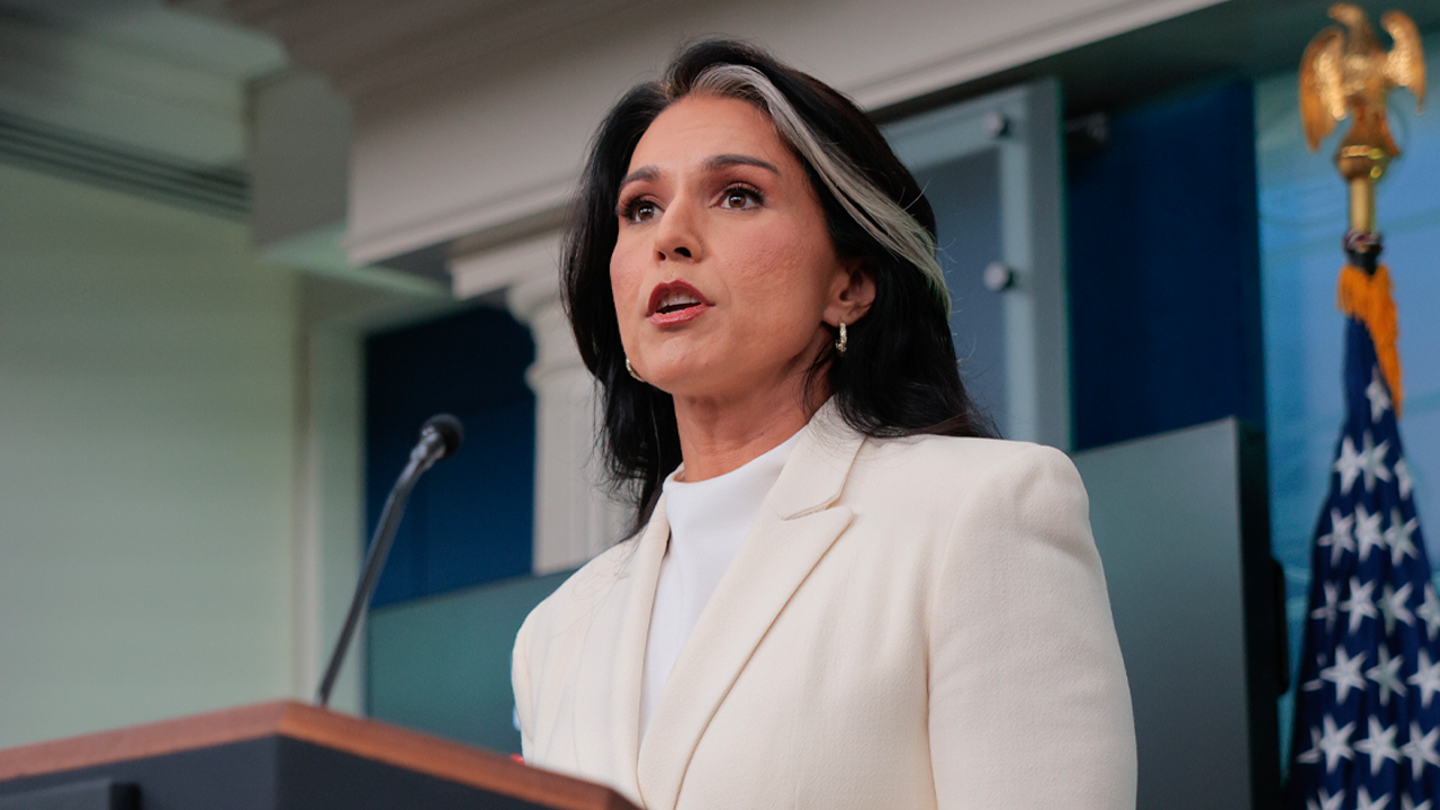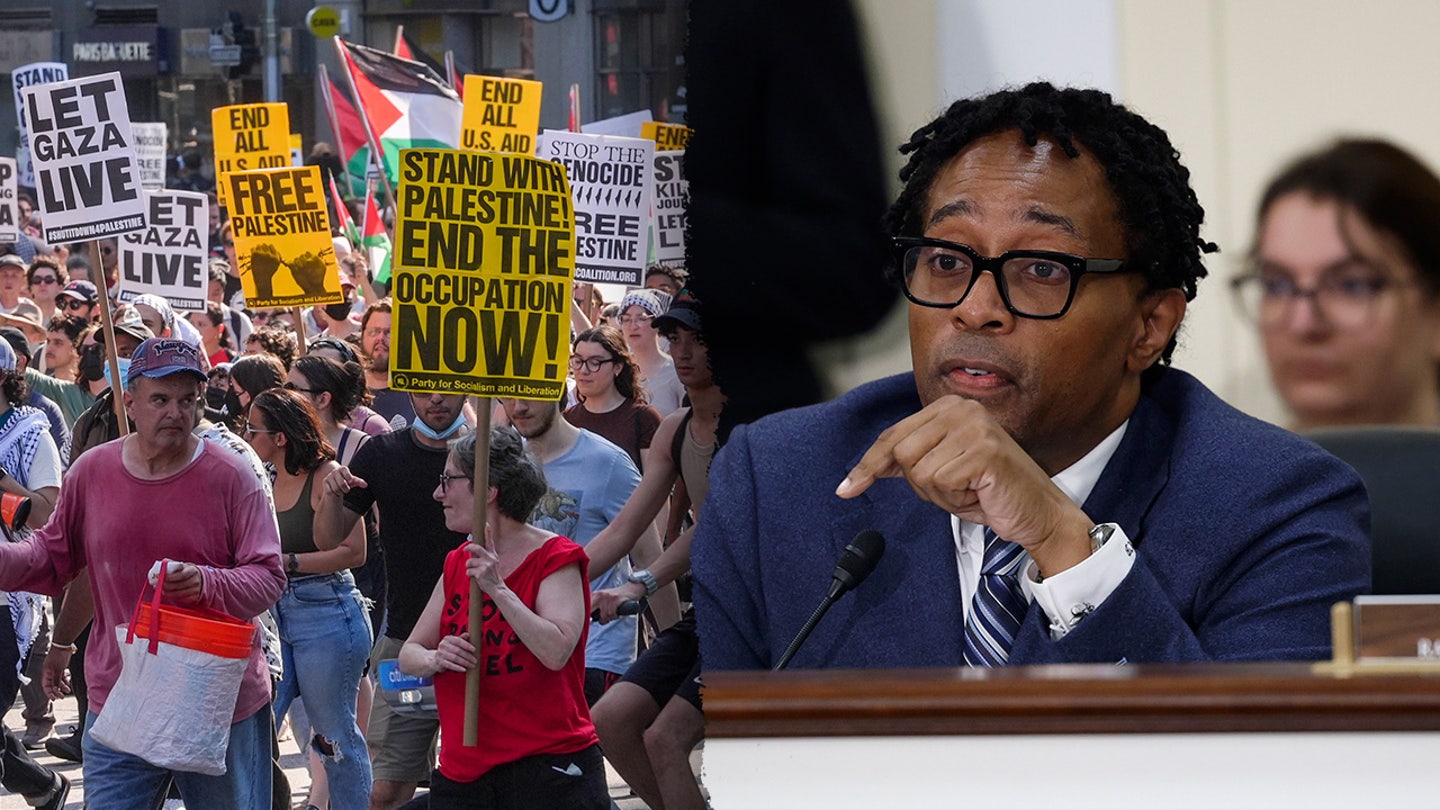
Vance, White House blast 'crazy communists' protesting DC clean-up, terrorizing locals: 'Stupid White hippies'
Entities mentioned:
- JD Vance: Righteousness, Security, Control
- Donald Trump: Power, Control, Legacy
- Pete Hegseth: Loyalty, Duty, Security
- Stephen Miller: Control, Righteousness, Moral outrage
- Protesters: Moral outrage, Justice, Freedom
- Trump Administration: Control, Security, Power
Article Assessment:
Credibility Score: 55/100
Bias Rating: 75/100 (Lean Right)
Sentiment Score: 30/100
Authoritarianism Risk: 70/100 (Authoritarian Tendencies)
Bias Analysis:
The article leans right, evidenced by its uncritical presentation of administration claims and use of loaded language against protesters. It primarily presents the administration's perspective without substantial counterbalancing views or fact-checking.
Key metric: Violent Crime Rate
As a social scientist, I analyze that this article highlights a contentious approach to addressing crime and homelessness in Washington D.C. The Trump administration's forceful intervention, while claiming to reduce crime, raises questions about civil liberties and the appropriate balance between security and individual rights. The rhetoric used by officials, particularly Miller, is divisive and potentially inflammatory, characterizing protesters as disconnected from the community and labeling them with politically charged terms. This approach may exacerbate social tensions and polarization. The reported 35% drop in violent crime over nine days is a significant claim that would require careful verification and context to fully assess its validity and sustainability.

Duffy’s DOT accuses Biden, Buttigieg of inflating air traffic controller pipeline: ‘Juiced the numbers’
Entities mentioned:
- Trump administration's Department of Transportation: Professional pride, Security, Control
- Biden administration: Ambition, Recognition, Influence
- Pete Buttigieg: Self-preservation, Competitive spirit, Righteousness
- Sean Duffy: Duty, Professional pride, Security
- Federal Aviation Administration (FAA): Professional pride, Safety, Duty
Article Assessment:
Credibility Score: 65/100
Bias Rating: 70/100 (Lean Right)
Sentiment Score: 35/100
Authoritarianism Risk: 40/100 (Generally Democratic)
Bias Analysis:
The article leans right, evidenced by more extensive quotes from Trump administration officials and a more critical tone towards the Biden administration's actions. While it includes some rebuttals from Buttigieg's team, these are presented more defensively.
Key metric: Air Traffic Controller Staffing Levels
As a social scientist, I analyze that this article highlights a contentious issue in air traffic controller recruitment and training standards between the Trump and Biden administrations. The Trump administration claims to be raising standards to improve completion rates at the training academy, while accusing the Biden administration of lowering standards to inflate recruitment numbers. This dispute impacts air traffic controller staffing levels, a critical component of air travel safety and efficiency. The conflicting claims and changes in qualification criteria suggest a politicization of what should be a strictly professional and safety-oriented process. This situation may lead to public uncertainty about the quality and sufficiency of air traffic control staffing, potentially affecting confidence in air travel safety.

Russians made concessions ‘almost immediately,’ Trump envoy says of Putin summit
Entities mentioned:
- Donald Trump: Power, Influence, Legacy
- Vladimir Putin: Control, Power, Self-preservation
- Steve Witkoff: Loyalty, Duty, Professional pride
- Volodymyr Zelenskyy: Security, Unity, Self-preservation
- Karoline Leavitt: Duty, Loyalty, Professional pride
- United States: Influence, Power, Security
- Russia: Control, Power, Self-preservation
- Ukraine: Security, Freedom, Self-preservation
- NATO: Security, Unity, Influence
Article Assessment:
Credibility Score: 65/100
Bias Rating: 55/100 (Center)
Sentiment Score: 60/100
Authoritarianism Risk: 35/100 (Generally Democratic)
Bias Analysis:
The article presents multiple perspectives, including those of U.S., Russian, and Ukrainian officials. However, it relies heavily on statements from Trump administration officials, which may slightly skew the narrative towards a U.S.-centric view.
Key metric: International Relations and Diplomacy
As a social scientist, I analyze that this article highlights a significant shift in U.S.-Russia relations, with potential implications for global security and diplomacy. The reported concessions by Russia during the Trump-Putin summit suggest a possible de-escalation of tensions over Ukraine. However, the specifics of these concessions are not disclosed, which limits a comprehensive assessment of their impact. The focus on security guarantees for Ukraine, without U.S. troop involvement, indicates a strategic approach to maintain stability in the region while avoiding direct military confrontation. The involvement of European allies in discussions points to a multilateral effort to address the Ukraine crisis. The article also reveals the delicate balance between diplomatic negotiations and public disclosure, as evidenced by the cautious statements from U.S. officials. Overall, this development could potentially lead to a reconfiguration of power dynamics in Eastern Europe, affecting U.S. influence in the region and global perceptions of its diplomatic capabilities.

Pentagon officials blast Washington Post for putting 'lives at risk' with report on Pete Hegseth’s security
Entities mentioned:
- Pentagon officials: Security, Indignation, Professional pride
- Washington Post: Recognition, Influence, Curiosity
- Pete Hegseth: Self-preservation, Security, Duty
- Army Criminal Investigation Division (CID): Duty, Security, Professional pride
- Kingsley Wilson: Loyalty, Security, Indignation
- Sean Parnell: Indignation, Security, Loyalty
- Dan Lamothe: Professional pride, Righteousness, Determination
- Rep. Anna Paulina Luna: Moral outrage, Justice, Security
Article Assessment:
Credibility Score: 70/100
Bias Rating: 65/100 (Lean Right)
Sentiment Score: 25/100
Authoritarianism Risk: 55/100 (Mixed/Neutral)
Bias Analysis:
The article leans right, evidenced by its focus on Pentagon officials' criticisms of the Washington Post and inclusion of multiple conservative voices. While it includes the Post's perspective, it gives more space and emphasis to those condemning the report.
Key metric: National Security Perception
As a social scientist, I analyze that this article highlights a significant tension between press freedom and national security concerns. The Washington Post's reporting on Secretary Hegseth's security details has sparked outrage among Pentagon officials, who claim it jeopardizes the safety of Hegseth and his family. This conflict underscores the delicate balance between transparency in government operations and the need to protect sensitive information. The public reaction, particularly from government officials, suggests a growing concern about the vulnerability of high-ranking officials in an increasingly polarized political climate. This incident may lead to increased scrutiny of media practices regarding reporting on security measures and could potentially influence future policies on information sharing between government agencies and the press. The strong reactions from multiple Pentagon officials indicate a unified stance on prioritizing security over press freedom in this instance, which could have implications for future media-government relations and public perception of national security priorities.

US announces more sanctions on ICC officials for targeting Americans, Israelis
Entities mentioned:
- International Criminal Court (ICC): Justice, Influence, Duty
- United States: Self-preservation, Power, Control
- Israel: Self-preservation, Security, Power
- Marco Rubio: Righteousness, Patriotism, Power
- Donald Trump: Power, Control, Influence
Article Assessment:
Credibility Score: 75/100
Bias Rating: 55/100 (Center)
Sentiment Score: 35/100
Authoritarianism Risk: 65/100 (Authoritarian Tendencies)
Bias Analysis:
The article presents both US and ICC perspectives, quoting officials from both sides. However, it gives slightly more space to the US position and reasoning behind the sanctions, suggesting a slight lean towards the US viewpoint.
Key metric: International Relations and Diplomacy
As a social scientist, I analyze that this move by the United States to sanction ICC officials significantly impacts international relations and diplomacy. The sanctions represent a strong pushback against international jurisdiction over US and Israeli nationals, potentially weakening the ICC's global influence and effectiveness. This action may strain relationships with allies, particularly those who are ICC members, and could be seen as the US prioritizing its sovereignty over international cooperation in matters of justice. The move also risks undermining the broader system of international law and could encourage other nations to similarly reject international court decisions they disagree with, potentially leading to a more fragmented global legal order.

Russian drone crashes in Polish field; Warsaw protests airspace violation and plans formal complaint
Entities mentioned:
- Russia: Power, Influence, Provocation
- Poland: Self-preservation, Security, Indignation
- Wladyslaw Kosiniak-Kamysz: Duty, Security, Wariness
- United States: Influence, Peace, Control
- European leaders: Unity, Security, Peace
- Ukraine: Self-preservation, Freedom, Justice
- Trump administration: Influence, Legacy, Power
Article Assessment:
Credibility Score: 75/100
Bias Rating: 55/100 (Center)
Sentiment Score: 30/100
Authoritarianism Risk: 35/100 (Generally Democratic)
Bias Analysis:
The article presents a relatively balanced view, including perspectives from Polish officials and local residents. However, there's a slight lean towards Western viewpoints, with more emphasis on Polish and US reactions than Russian perspectives.
Key metric: International Security and Diplomacy
As a social scientist, I analyze that this incident of a Russian drone crashing in Poland represents a significant escalation in international tensions, particularly in the context of the ongoing Ukraine-Russia conflict. The event demonstrates Russia's willingness to provoke NATO members, potentially testing the alliance's resolve and response mechanisms. This action could impact international security by increasing military alertness in Eastern Europe and potentially straining diplomatic efforts to resolve the Ukraine conflict. The incident also highlights the complex interplay between military technology, international borders, and diplomatic relations in modern warfare and peacekeeping efforts. The Trump administration's involvement in brokering talks between Russia and Ukraine adds another layer of complexity to the situation, potentially influencing the geopolitical dynamics in the region.

Gabbard launches 'ODNI 2.0,' with plan to cut workforce by 40%
Entities mentioned:
- Tulsi Gabbard: Determination, Righteousness, Professional pride
- ODNI (Office of the Director of National Intelligence): Efficiency, Security, Duty
- President Trump: Leadership, Control, Security
- Intelligence Community: Duty, Security, Professional pride
Article Assessment:
Credibility Score: 65/100
Bias Rating: 70/100 (Lean Right)
Sentiment Score: 65/100
Authoritarianism Risk: 55/100 (Mixed/Neutral)
Bias Analysis:
The article leans right, presenting the ODNI restructuring in a positive light and emphasizing Trump's leadership. It primarily presents the administration's perspective without significant counterpoints or critical analysis.
Key metric: Government Efficiency and National Security
As a social scientist, I analyze that this article describes a significant restructuring of the Office of the Director of National Intelligence (ODNI) under the leadership of Tulsi Gabbard. The transformation, dubbed 'ODNI 2.0', aims to address issues of inefficiency, politicization, and abuse within the intelligence community. The proposed changes, including a 40% workforce reduction and $700 million in annual savings, represent a major shift in how U.S. intelligence operations are conducted. This restructuring could have substantial impacts on national security processes, government spending, and the overall effectiveness of intelligence gathering and dissemination. The focus on eliminating politicization and rebuilding trust suggests an attempt to address perceived failures in the intelligence community's recent history. However, such dramatic changes may also lead to short-term disruptions in intelligence operations and potential resistance from within the organization.

NATO defense chiefs stress commitment to Ukraine, discuss security guarantees during virtual summit
Entities mentioned:
- NATO: Unity, Security, Duty
- Ukraine: Self-preservation, Security, Freedom
- Gen. Alexus Grynkewich: Duty, Professional pride, Leadership
- Gen. Dan Caine: Duty, Obligation, Unity
- Russia: Power, Control, Self-preservation
- President Donald Trump: Influence, Legacy, Power
- President Vladimir Putin: Power, Control, Influence
- President Volodymyr Zelenskyy: Self-preservation, Determination, Duty
- Sergey Lavrov: Wariness, Power, Control
Article Assessment:
Credibility Score: 75/100
Bias Rating: 45/100 (Center)
Sentiment Score: 55/100
Authoritarianism Risk: 25/100 (Generally Democratic)
Bias Analysis:
The article presents a balanced view of the NATO meeting, including perspectives from multiple sides. While it leans slightly towards a pro-NATO stance, it also includes Russian viewpoints and mentions Trump's separate diplomatic efforts.
Key metric: International Alliances and Security
As a social scientist, I analyze that this article highlights the ongoing commitment of NATO to Ukraine's security in the face of Russian aggression. The virtual meeting of NATO defense chiefs demonstrates a united front in supporting Ukraine and discussing potential security guarantees. This reaffirmation of support, coupled with the involvement of high-ranking officials like Gen. Grynkewich and Gen. Caine, suggests a strong commitment to maintaining the alliance's cohesion and effectiveness. The discussion of security guarantees for Ukraine as part of a potential peace agreement indicates a forward-looking approach to regional stability. However, Russia's criticism of these discussions, as voiced by Lavrov, suggests continued tensions and potential obstacles to a peaceful resolution. The involvement of President Trump in separate meetings with Putin and Zelenskyy adds another layer of complexity to the diplomatic efforts. Overall, this meeting and the surrounding events underscore the ongoing importance of NATO in shaping European security dynamics and the challenges in balancing support for Ukraine with the need for a sustainable peace agreement.

Ukraine’s stolen children crisis looms large as NATO meets on Russia’s war
Entities mentioned:
- NATO: Security, Unity, Duty
- Russia: Power, Control, Influence
- Ukraine: Justice, Self-preservation, Freedom
- Donald Trump: Influence, Recognition, Ambition
- Vladimir Putin: Power, Control, Influence
- Volodymyr Zelenskyy: Justice, Determination, Duty
- Melania Trump: Compassion, Influence, Recognition
- Olena Zelenska: Justice, Compassion, Duty
Article Assessment:
Credibility Score: 75/100
Bias Rating: 55/100 (Center)
Sentiment Score: 30/100
Authoritarianism Risk: 35/100 (Generally Democratic)
Bias Analysis:
The article presents multiple perspectives, including those of Ukraine, Russia, and international mediators. While it leans slightly towards the Ukrainian narrative, it also includes factual information about negotiations and third-party involvement.
Key metric: International Human Rights Compliance
As a social scientist, I analyze that this article highlights a significant human rights crisis involving the forced deportation and transfer of Ukrainian children by Russian authorities. This issue impacts the US performance metric of International Human Rights Compliance as it involves grave violations of children's rights and international law. The involvement of high-profile figures like Donald Trump and Melania Trump in discussions with Russian and Ukrainian leaders suggests an attempt to leverage diplomatic channels to address this crisis. However, the limited success in returning these children (only about 1,500 out of potentially 35,000) indicates the complexity and severity of the situation. The article also reveals the challenges in negotiations between Ukraine and Russia on this matter, with Russia refusing direct handovers to Kyiv. This crisis not only affects bilateral relations between the involved countries but also has implications for NATO's strategic approach to the ongoing conflict in Ukraine.

House Democrat clashes with activists over Israel 'genocide' as pro-Palestinian protests derail town hall
Entities mentioned:
- Rep. Wesley Bell: Duty, Professional pride, Unity
- Pro-Palestinian activists: Moral outrage, Justice, Righteousness
- Hamas: Power, Control, Revenge
- Israel: Self-preservation, Security, Justice
Article Assessment:
Credibility Score: 75/100
Bias Rating: 55/100 (Center)
Sentiment Score: 30/100
Authoritarianism Risk: 25/100 (Generally Democratic)
Bias Analysis:
The article presents multiple viewpoints, including those of Rep. Bell, protesters, and supportive attendees. While it leans slightly towards Bell's perspective, it also includes the activists' arguments and attempts to provide context for both sides.
Key metric: Political Polarization
As a social scientist, I analyze that this event demonstrates increasing political polarization in the United States, particularly surrounding the Israel-Palestine conflict. The town hall's disruption by pro-Palestinian activists highlights the growing divide between moderate Democrats and more progressive elements within the party. Rep. Bell's struggle to maintain order and discuss local issues amidst protests over foreign policy reflects the challenges faced by elected officials in addressing both domestic and international concerns. The intense emotions and accusations of genocide indicate a deepening rift in public opinion on the Israel-Gaza conflict, which could potentially impact future policy decisions and electoral outcomes.